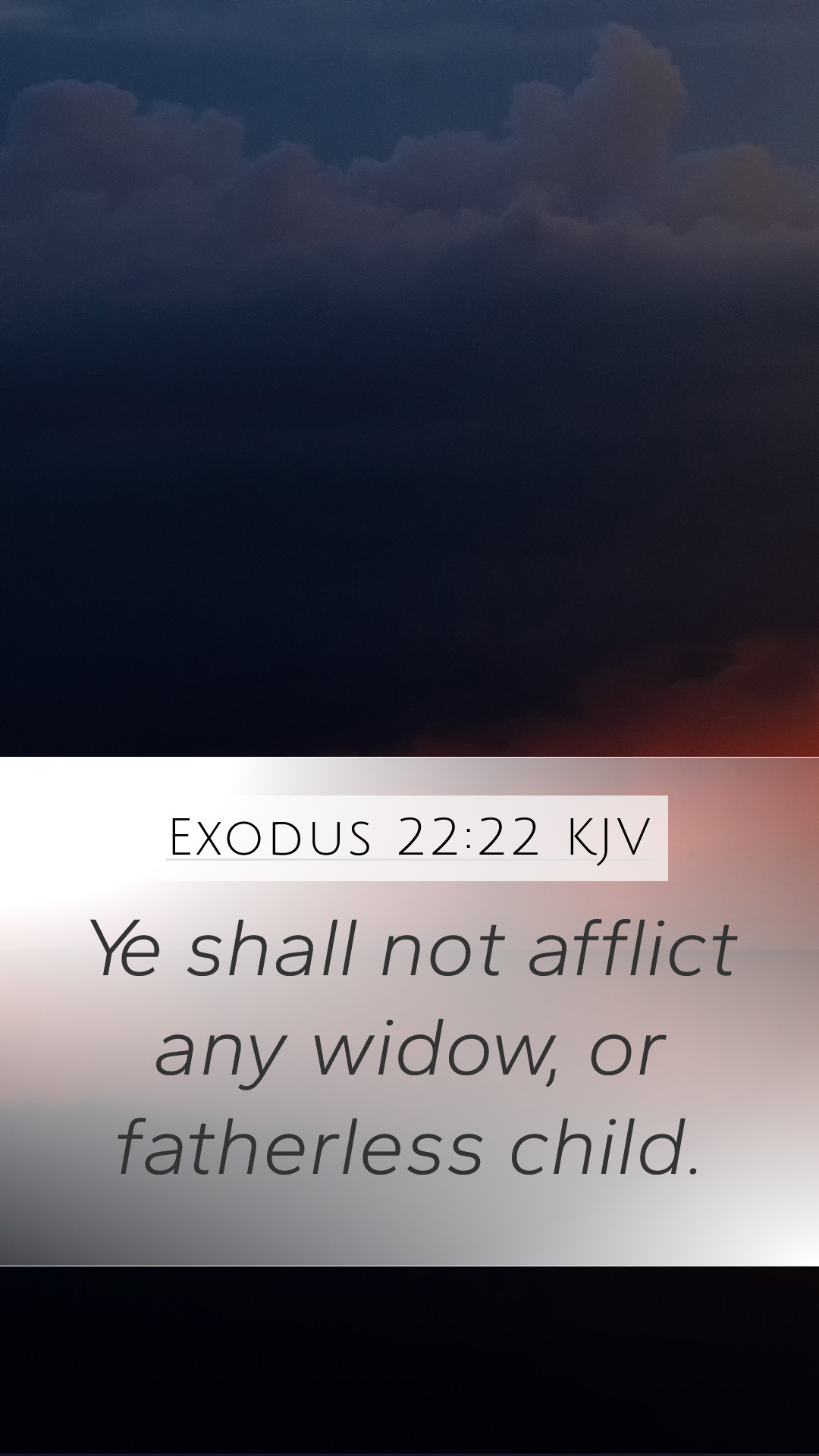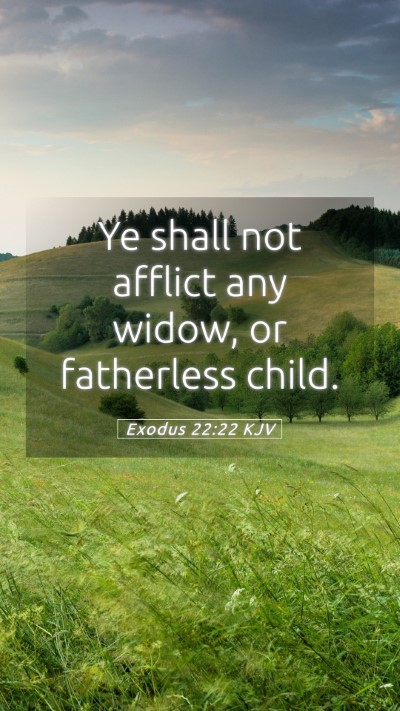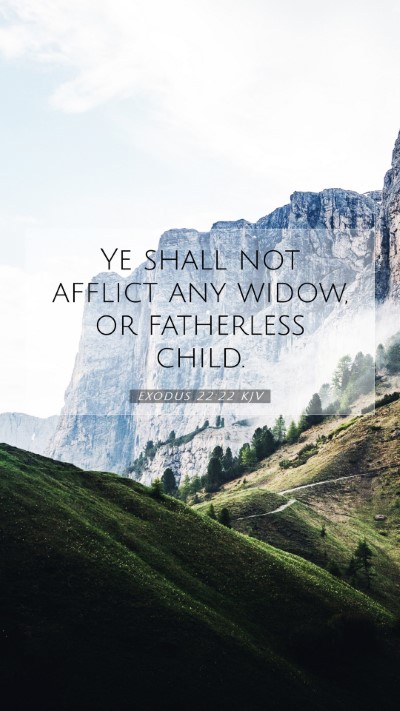Understanding Exodus 22:22
Exodus 22:22 states: "You shall not afflict any widow or fatherless child." This command encompasses deep principles of justice, mercy, and social responsibility within the community of Israel.
Meaning of Exodus 22:22
The verse emphasizes the moral imperative to protect the vulnerable in society, specifically widows and orphans, who are often regarded as the most defenseless members of the community.
Bible Verse Commentary
According to Matthew Henry, this verse calls for the highest regard for those in dire circumstances. He highlights the divine concern that people show compassion to those who have lost their primary caregivers, thereby underscoring God’s protective stance over the marginalized.
Albert Barnes adds that such admonitions reflect the broader biblical theme of justice and fairness. He suggests that mistreatment of widows and orphans could lead to dire consequences, indicating a moral and spiritual obligation to support the oppressed.
Adam Clarke elaborates that this directive is founded upon God's nature, which seeks justice for the downtrodden. Clarke notes that neglecting this principle not only harms the individuals but also invites divine retribution upon the entire community.
Scripture Analysis
The call not to afflict widows and orphans resonates throughout Scripture, reflecting God’s advocacy for the marginalized. Understanding this verse requires us to recognize its historical context, where such individuals often faced extreme social and economic hardships.
In-Depth Bible Verse Analysis
This commandment serves as a foundation for later teachings in both the Old and New Testaments that advocate for social justice and care for those in need. The implication of this verse extends beyond mere prohibition; it advocates for proactive compassion and support.
- Historical Context: In ancient Israel, widows and orphans lacked the societal support systems we recognize today. As such, they were at risk of exploitation and oppression.
- Application to Daily Life: The principles of this verse encourage individuals today to support social justice initiatives and care for the vulnerable in their communities, making it relevant in modern contexts.
Significance of Exodus 22:22
This verse is part of a larger set of laws given to the Israelites, representing God's desire for a just society. The failure to heed this commandment not only impacts individuals but also has communal implications, leading to societal decay.
Cross References
- Deuteronomy 10:18 - "He administers justice for the fatherless and the widow."
- Psalms 146:9 - "The Lord protects the strangers; He relieves the fatherless and widow."
- James 1:27 - "Pure and undefiled religion before God and the Father is this: to visit orphans and widows in their trouble."
Bible Study Insights
For those engaged in online Bible study or Bible study groups, reflecting on Exodus 22:22 can yield fruitful discussions about how contemporary believers can embody these principles. Consider implementing Bible study lessons that focus on social justice themes throughout Scripture, and how they relate to modern societal issues.
Utilize Bible study tools and resources that delve deeper into the significance of caring for the marginalized, and encourage participants to share their insights and applications of this passage in daily life.
Conclusion
Exodus 22:22 not only conveys a straightforward command but also invites deeper reflection into the character of God as a defender of the weak. This call to action is as relevant today as it was in ancient Israel, urging believers to practice and uphold justice and mercy in their lives.


